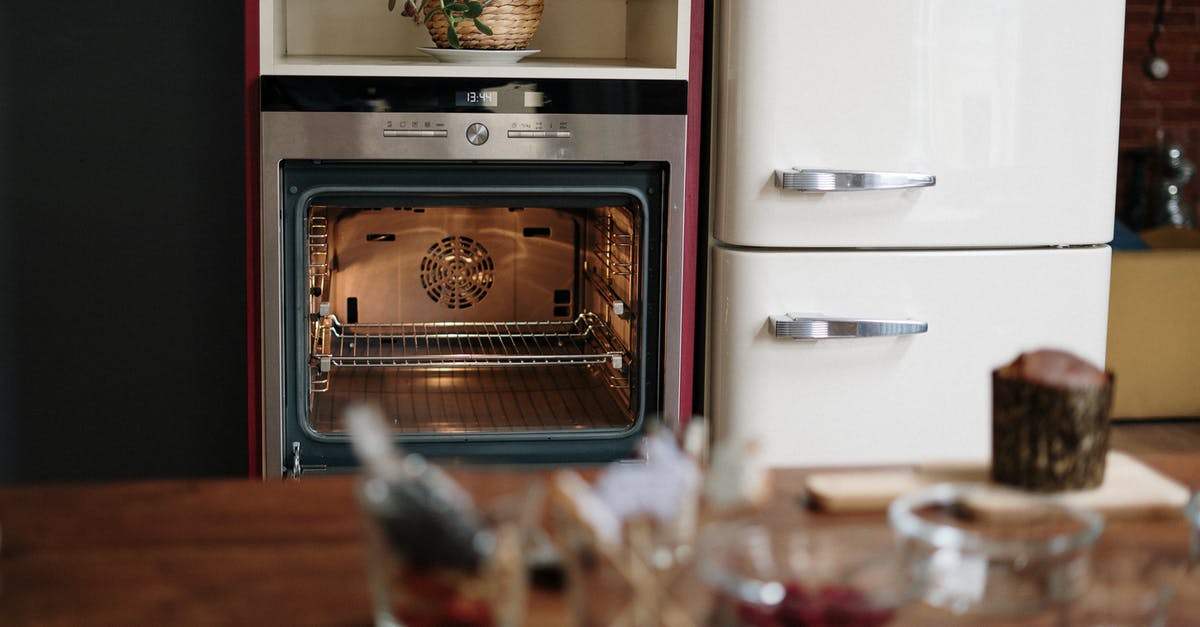life without refrigerator

I'm a student living in a dorm without a refrigerator. I decided to change my diet and be a pescetarian starting this year. But most of the food sold nearby doesn't fit my diet or my budget so I'll have to cook my own food. I'm not quite sure what items I can stock on because I have no refrigerator. I don't wanna live with preserved food either since the reason for my shift is to eat healthier. Can you guys help me? Do you have any tips on living fridge-less?
Best Answer
I turned the fridge off years ago (noisy, waste of electricity). Equipment I've found handy:
- A food dehydrator (or the sun when available) as many foodstuffs dry well. (Possibly also mosquito netting or screens, as bugs love to get into e.g. tomatoes.) Don't overlook things like mushroom stems as these can be dried then used to make stock. Downside: noisy when running.
- With a oven (or toaster oven?) you could also dry or roast things, e.g. dandelion roots.
- Tins and plastic containers. Lots of these. Space may be an issue in a dorm, or get creative and stash them under a raised bed. Lentils, beans, rice, chickpeas, etc.
- Rubber gasket jars, possibly with airlocks, great for salt ferments (mince onions, 2% saline solution, let sit a few days). Roommates who only like modern sterile food (e.g. food with no smell) may be problem (find a better roommate). Moroccan preserved lemons (chop lemons lotsa salt wait a few weeks) are also possible in these. Use the lemons quickly when ready.
- Glass jars with airlocks, to make a juice made from honey.
- Old peanut butter jars and coffee filters are good to keep around, as you can sprout beans in these. Metal lids however mix poorly with vinegar preserve solutions (the acid eats them away) e.g. grated ginger root into vinegar will preserve the ginger for a few weeks, or even homemade mustard can be a problem with a metal lid.
- Stock pot to simmer down stocks. Bonus: winter humidification of the room. Smaller versions of these may not be as good as a heavy pot on a stove or standalone burner, though.
Various foods ideas:
- Tinned fish is quick and easy, e.g. bread crumbs + tinned mackerel + crushed walnuts + apple cider vinegar + soy sauce + dried shiso leaves + roasted chillies mix and then heat briefly. (Modern industrial soy sauce is vile, try to find the traditional version if possible.)
- Load up on spices: make your own mustard, dried or roasted chillies keep well, ajwain is yummy in lentils with some dried stinging nettle and ghee (buy unsalted butter, simmer down, spoon off the white foam, stash in a glass jar).
- See what you can forage for; in my area, rosemary grows like everywhere and nobody has (yet) objected to my dandelion harvests from state property. Check local laws for details, and don't harvest downstream from e.g. parking lots on account of the toxins from the cars.
- Dried kale can be snuck into soups, egg dishs, etc.
- Maintain a sourdough starter. 1/3c ground whole wheat (or also rye) grains per day plus water; use discarded half of this with equal amount flour and with a toaster oven you could probably make pita bread or pizza crusts, or cream of wheat soups, etc. Bread with flavor, what a concept!
Physical/Social ideas:
- Join or form a food club. Networking, possible bulk pricing on food, etc.
- If the dorm rooms are unsuitable for food storage (too warm?), are there other areas in the building that are, and are the Powers That Be open to such non-modern-traditional uses of the space?
A selection of my current stock:
Pictures about "life without refrigerator"



Quick Answer about "life without refrigerator"
- Buying fresh meat daily and cooking it immediately.
- Purchase canned or dried meats.
- Consider drying and canning your own meat.
- Cut back on your meat consumption.
What would life be like without a fridge?
Without refrigeration technology, food spoils faster and disease spreads more easily. We wouldn't have the cooled environments necessary for some medical research. Food production and storage might be less manageable. A world without refrigeration could have massive effects on society as we know it today.How long can you go without a fridge?
Power Outages: During and After The refrigerator will keep food cold for about 4 hours if it is unopened. A full freezer will keep the temperature for approximately 48 hours (24 hours if it is half full) if the door remains closed.How do you keep food fresh without a refrigerator?
Here's how to make one:What to do if you have no fridge?
A cooler or cooler bag It's always best to start off with the food you want to store already pre-chilled \u2013 so get it straight from the grocery store into a cooler bag that has ice in it \u2013 a large chunk of ice will last a lot longer than buying packets of ice cubes.You Can Live Without Refrigeration - Here's How
More answers regarding life without refrigerator
Answer 2
One idea would be to look to cuisines that are heavy on pantry staples (or have quality canned/jarred alternatives to fresh ingredients), with only a few fresh ingredients required.
For example, staples in a lot of Latin American cuisine include onions, garlic, beans, and rice, none of which require refrigeration. Canned tomatoes are often better than out of season tomatoes, and there are many shelf-stable sauces you can buy to vary the flavors. You can keep a bunch of cilantro fresh in a cup of water for more days than you would think. From there, you can always swap in different proteins (fish, cheese, eggs) as desired. Don't forget that many fruits common in these cuisines are also fine to store at room temp for a few days (plantains come immediately to mind).
Another example is Japanese cuisine. Often people think of the sushi/sashimi, but many dishes in traditional cuisine are heavy on pantry staples like rice, noodles, dried fish, dried seaweed, dried mushrooms, soy sauce, rice wine and its vinegar, and more. There is shelf-stable or dried tofu available, and lots of different kinds of dried or canned fish for protein. Don't forget that many common items like pumpkin, carrots, ginger, and garlic are fine without refrigeration for weeks, if properly stored in a cool, dry place. Again, you can vary these ingredients a lot of different ways with one or two fresh ingredients.
Finally, you'll have to learn to shop a bit differently and plan menus a bit more carefully. It's easy to whip something up when you have a fridge full of goodies, but you'll need to think a little farther ahead. You can't just buy that lettuce or fish unless you're going to eat it today. You'll also have to buy smaller amounts of these kinds of ingredients and probably shop more often. You can't just make a big batch of something (soup, pasta, whatever) because you can't safely store most cooked foods, so you'll have to cook more often, again in smaller portions.
I hope this helps, and I'd be glad to develop the answer further.
Answer 3
It's hard to give more specific recommendations without knowledge of what methods you have to cook with, but a couple of things to help:
In a grocery store, any of the produce sold that isn't on ice or in a refrigerated case hold up just fine for a couple of days at room temperature, so long as it didn't show signs of spoiling when you bought it. And make sure it's dry if it's going to be spending time in a bag -- I hate it when I'm just about to grab something, and then the sprayers kick in.
Things that have been cut into will spoil faster than uncut things. Instead of buying cabbage, buy brussel sprouts so you can more easily portion out the appropriate amount. If you have something like lettuce, get a variety other than iceburg so you can break off the outside leaves as you go.
Some things will last longer if you keep the roots / stems in water. (I use this for celery ... trim the bottom and put it in water ... but I keep it in the fridge; don't know how it'd hold up at room temp). It works with most herbs that have sufficient stem left on them. Change the water daily, though.
The US is one of the only countries that insists on keeping eggs refrigerated. The concern is partly due to condensation from moving cold eggs to warm air ... so I tend to get eggs in paper containers to better regulate moisture. I've heard advice that a day at room temp ages them about the same as a week in the fridge ... so if you get eggs that are stamped many weeks out, you should be able to keep them a few days. If you're immune compromised, or in a very warm climate, I can't recommend this, though.
If you're in a sufficiently dry environment with sufficient air movement, you can try evaporative cooling with a zeer. There are instructions online. It won't keep things down to fridge temps; it's more like an old fashioned root cellar.
If you have the necessary equipment and space to host, consider cooking for like-minded friends. If you all take turns cooking, you can get a bit better economy of scale going. (and use things up faster, without your cooking the same dish over and over again through the week).
If you have access to an oven, consider baked goods -- muffins and 'healthy cookies' can last a few days at room temperature in a well-sealed container. (although many of the 'healthy cookie' recipes use strange or expensive ingredients)
Sources: Stack Exchange - This article follows the attribution requirements of Stack Exchange and is licensed under CC BY-SA 3.0.
Images: cottonbro, cottonbro, Curtis Adams, RA Fa

